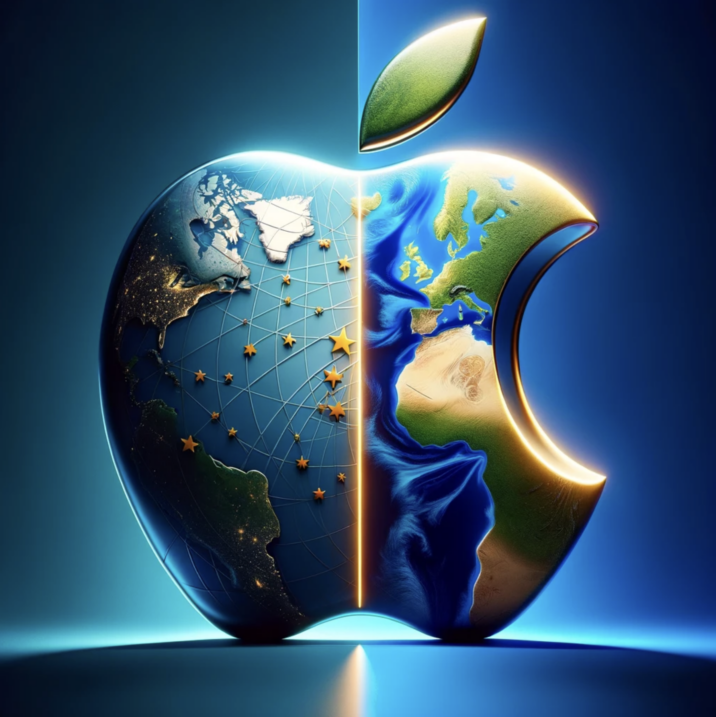
In a pivotal move, Apple, the tech giant renowned for its walled-garden ecosystem, is poised to open the gates. The buzz in the tech community is palpable: sideloading, a term that might sound like jargon, is set to become a household word among iOS users in the European Union. But what exactly is sideloading, and why is it stirring up such a commotion?
Simply put, sideloading is the process of installing applications on a device from sources other than the official app store. Think of it as shopping outside of your favorite, familiar supermarket; you’re stepping into a world of new, possibly uncharted aisles. This is significant because, until now, Apple’s iOS users could only download apps from the App Store, a controlled environment known for its stringent security and quality checks.
The winds of change are blowing due to the EU’s Digital Markets Act, a piece of antitrust legislation that challenges the status quo of app distribution on platforms like iOS. This act, passed last year, aims to dismantle the barriers in digital marketplaces, promoting fair competition and consumer choice. For Apple, this means allowing third-party app installations – a considerable shift in its operational paradigm.
The implications are extensive. For starters, iPhone and iPad users in the EU will soon have access to a broader spectrum of apps, including those not available on the App Store. This opens the door to potentially more innovative, diverse, and competitive software offerings. But it’s not just about more apps; it’s about freedom of choice and breaking free from the confines of a single, albeit secure, marketplace.
Bloomberg’s Mark Gurman reports that Apple is gearing up to implement these changes in the coming weeks. The move could lead to the App Store being bifurcated: one version for the EU and another for the rest of the world. This geographical differentiation is not just a clerical change but a significant pivot in how tech companies comply with regional laws and user rights.
The Internet Patrol is completely free, and reader-supported. Your tips via CashApp, Venmo, or Paypal are appreciated! Receipts will come from ISIPP.
But it’s not all smooth sailing. Sideloading also raises concerns, primarily around security and privacy. The App Store’s rigorous vetting process has shielded users from many malicious apps. Sideloading, by nature, could expose users to higher risks, making digital literacy and awareness more crucial than ever.
Beyond the EU, this legislative change is setting a precedent. Japan and the US are eyeing similar antitrust measures, indicating a global shift towards more open digital ecosystems. This could mean that Apple might eventually extend sideloading to users worldwide, a strategic move to streamline its compliance processes.
In summary, sideloading on iOS represents more than just an additional feature. It’s a symbol of evolving digital rights, market dynamics, and the ongoing tug-of-war between security and freedom in the tech world. For the average user, it heralds a new era of choice and responsibility. Stay tuned, as the world watches how Apple navigates these uncharted waters.
The Internet Patrol is completely free, and reader-supported. Your tips via CashApp, Venmo, or Paypal are appreciated! Receipts will come from ISIPP.









